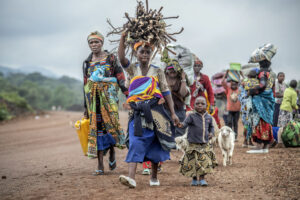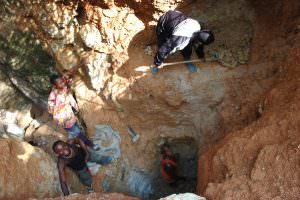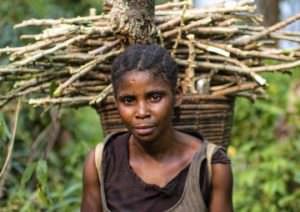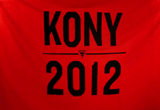Truthdiggers of the Week: The Refugee Olympic Team
The 10 athletes competing without a flag or anthem at the Rio Olympics are challenging conceptions of nationalism, as well as reminding the world that the growing refugee crisis must be addressed.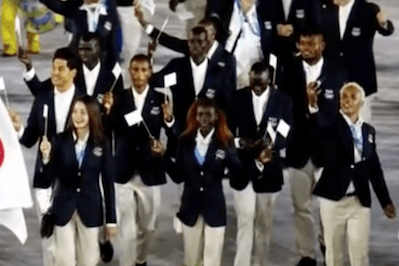
Every week the Truthdig editorial staff selects a Truthdigger of the Week, a group or person worthy of recognition for speaking truth to power, breaking the story or blowing the whistle. It is not a lifetime achievement award. Rather, we’re looking for newsmakers whose actions in a given week are worth celebrating.
There was always something about the Olympics I couldn’t quite get into. As the daughter of immigrants, and one who has by now lived in more countries than she can count on one hand, I felt that the inherent nationalism, the glorification of the nation-state that the Olympics represented, ignored those who were nationless or felt that they could not belong to any country, yet still felt connected to a broader global society. This year at the 2016 Rio Olympics, during the worst global refugee crisis since World War II, 10 athletes are challenging the way we understand the world.
I’m talking, of course, about the first-ever Refugee Olympic Team. Every member of the team has a painful and inspiring story.
The 10 and their countries of origin are Rami Anis, Syria, swimming; Yonas Kinde, Ethiopia, track and field; Yiech Pur Biel, James Nyang Chiengjiek, Anjelina Nada Lohalith, Rose Nathike Lokonyen and Paulo Amotun Lokoro, all from South Sudan, track and field; Yolande Bukasa Mabika and Popole Misenga, both from the Democratic Republic of the Congo, judo; and Yusra Mardini, Syria, swimming.
Mardini is now widely known for her bravery as she risked her life swimming for three hours in the open sea to save 20 refugees from dying during a boat journey from Turkey to Greece.
The five South Sudanese runners got to Rio by way of Kenya’s Kakuma refugee camp. Lokonyen and Biel until recently had to train for 10k competitions without shoes, and Chiengjiek fled his country to avoid becoming a child soldier.
Mabika and Misenga, who were abused by their coaches as members of the Congolese judo team, sought asylum in Brazil during a 2013 competition in Rio.
All of these athletes, whether breaking records or even getting knocked out of competitions, have made history.
The paths that brought them to Rio this summer are only a few of the many heartbreaking journeys that millions have suffered and will continue to suffer because of crises in the Middle East, Africa, Latin America and beyond. Importantly, their success shines a much-needed light on the plight of refugees and challenges the “nationalistic ethos” ingrained in the Olympics for 120 years, as a powerful piece in The Atlantic puts it. And at a time when the scariest aspects of nationalism are too apparent in the United States and elsewhere, a reminder that we are all human, regardless of whether or not we have a flag or an anthem, is crucial.
And yet it is true that while the 10 were cheered at the Rio opening ceremony, many of our governments are making refugees jump through difficult hoops or even turning them away outright. As Roger Cohen points out in The New York Times:
… the world is moved by Team Refugees. Yet, it is unmoved by refugees.
They die at sea. They die sealed in the back of a truck. They die anonymous deaths. Fences are erected, walls mooted. Posters decry them. They represent danger and threaten disruption. They are freeloaders. They are left in festering limbo on remote Pacific islands. … Rightist political parties thrive by scapegoating them. Nobody wants refugees. They could be terrorists or rapists. They sit in reception centers. The United States pledged to take in at least 10,000 Syrian refugees in the current fiscal year. In the previous four years, it had admitted about 1,900. This is a pittance. About 4.8 million Syrians have fled their country since the war began.
Cohen rightly worries that “after the fanfare” of the Olympics, many people will forget the refugees and the need to bring them into our homes as well as help them reconstruct their homelands. The Independent’s Holly Baxter also reminds Olympics viewers moved by the refugee team that we shouldn’t give asylum only to potential Olympians, but rather to all and any who are fleeing conflict, violence, destitution. “Whether we take teenagers crippled by PTSD and shrapnel wounds or eight-year-olds who could beat Andy Murray at singles should be immaterial. This is a humanitarian crisis, not a Britain’s Got Talent-style audition process.”
However, as Uri Friedman writes in The Atlantic, alluding to a poem by W.H. Auden about the 1930s Jewish refugee crisis:
Affirming that 10 athletes are not officially dead to the world of Olympic competition just because they’ve been separated from their country is, without question, a very small step in addressing the refugee crisis. But it’s a small step occurring on a big stage. “We are not only refugees. We are like everyone in the world. We can do something. We can achieve something,” Yusra Mardini, the Syrian swimmer, has said. Perhaps people watching the Olympics will apply that message to refugees around the world who want to either return home or find a permanent home elsewhere.
Their very presence at the global competition can be seen as an acknowledgment of the hardships so many innocent people are facing, however small that presence seems in the face of such immense suffering. These 10 athletes, given the adversities they’ve overcome with the kind of determination that makes them not only great athletes but also great global citizens, remind us that refugees, like all of us, have families and hopes and dreams they are working hard to achieve.
“My dream, my first priority,” Lokonyen said, “is to help my parents and my siblings and then after that to help my fellow refugees.”
Let us all take up this torch after the glow of the Olympics fades and keep not just these 10 but millions of others in mind as we put pressure on our political leaders to address the refugee crisis.
For their immense determination, for reminding us of the work that lies ahead, and for being symbols of hope for their fellow refugees, the Refugee Olympians are our Truthdiggers of the Week.
Your support matters…Independent journalism is under threat and overshadowed by heavily funded mainstream media.
You can help level the playing field. Become a member.
Your tax-deductible contribution keeps us digging beneath the headlines to give you thought-provoking, investigative reporting and analysis that unearths what's really happening- without compromise.
Give today to support our courageous, independent journalists.
